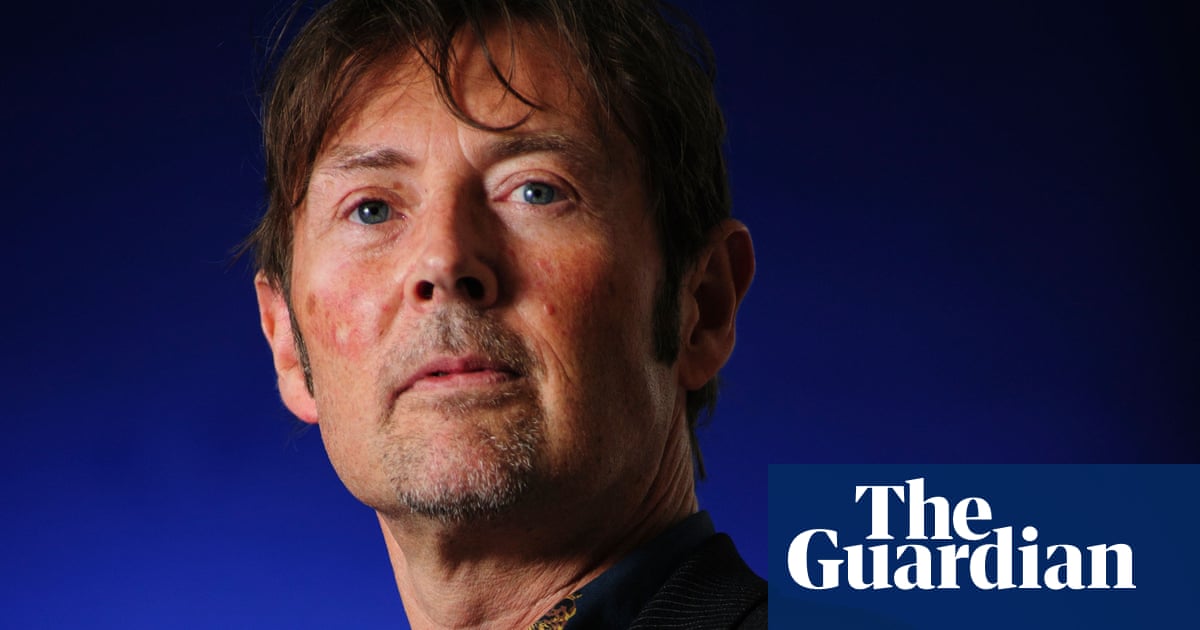
Margo Price was 19 years old when she decided to drop out of college and make music instead. She had taken some mushrooms and had a psychedelic epiphany about her future that she likens to “a conversation with God”. Full of optimism, she packed up her belongings and moved from small-town Illinois to Nashville, Tennessee, where she set about building her career – but things didn’t quite go to plan. It would take a further 14 years for Price to land a record deal. In that time, she busked, worked as a waitress and taught dance classes to children. She endured grinding poverty, often subsisting on a single meal a day, and at one point slept in a tent. So what kept her going?
“I was pretty stubborn,” the alt-country star remembers. “I had this thing of: ‘I’m gonna make this happen, I’m not gonna stop, even if I know it’s unhealthy.’ Sometimes it felt like an addiction in itself.”
Price, now 39, has documented her years trying to make it in a vivid and poignant memoir, Maybe We’ll Make It. She was inspired, in part, by Patti Smith’s book Just Kids, in which Smith looks back on her early years as an artist in New York. “I just loved how her book took place in those years that she was struggling,” says Price. “And I thought: ‘If I don’t write about this now, I’m going to forget all the details.’”
Price is talking from her home in Tennessee where she lives with her husband and musical partner Jeremy Ivey, and their two children, Judah and Ramona. The family recently moved out to the countryside in Whites Creek, 20 minutes out of Nashville. “We’ve got about six acres out here so I can be totally naked in my backyard,” Price grins, pointing to the leafy scene out of the window behind her. “I just got back from a hike with my dogs. I go about three miles every morning. I try to get lost out there every day, although my children go to school in east Nashville so I still get my fill of bougie coffee.”
Price found the process of writing cathartic and painful. The book dwells on some of her lowest points, most notably the death of Ezra, her son Judah’s twin brother, 10 days after he was born, due to a heart defect. It also traces her long and problematic relationship with alcohol, which began when she was 12 – “Jesus couldn’t be wrong,” she writes, observing communion rites at church – and reached its nadir in the months following Ezra’s death. One night, after a long evening of drinking, she got into her car and crashed into a telegraph pole, resulting in a weekend in prison.
Price notes she was still drinking when she wrote the first draft of the book. It wasn’t until her editor said to her: “You do know that whiskey is basically a character in this book, don’t you?” that she found the impetus to quit. “I was finally at the end of so much cognitive dissonance with my drinking, and how it was making me feel,” she says. “I had a really bad time when we lost the baby, and then, when my career took off, a lot of that drinking and partying was fun. Then the pandemic hit, and I was just not doing well with it. [Alcohol] was making me feel so much depression and anxiety.”
In preparation for the release of Maybe We’ll Make It, Price has been having therapy – “Because I was having panic attacks, thinking about all of this being out there,” she explains. “I know what people do on the internet, and I was imagining the names they were gonna call me. They’re gonna say I’m a horrible mother, that I’m a drunk. But I also [hope] that people are going to appreciate my vulnerability.”
She recalls sitting at home one night with Ivey and bursting into tears about what her parents and siblings would think. “I said: ‘What if I burn all my bridges? What if they won’t let me come back home?’ He just looked at me and said: ‘You belong to no one.’” Price smiles and holds up an arm to the camera. “What he said meant so much, I went and got it tattooed on my arm.”
She is currently putting the final touches to an album, Strays, that is due for release in the new year; a few days after our chat, its first single, Been to the Mountain, is released. It’s a song that sardonically references her change in fortunes – “Used to be a waitress but now I’m a consumer” – and blends old-time country with 70s rock’n’roll. In the book, Price bemoans the Nashville scene that saw her and her first band, Buffalo Clover, as “too country for the rock scene and too rock for the country scene”. Now, as a solo artist, she has found acceptance and an audience away from the mainstream tastes of Music Row. “I don’t put any limits on what genres I draw on and what I put on my paintbrush,” she says.
Her early brushes with music industry figures were frequently grim. One would-be manager lured her to his house and then spiked her drink; she escaped by locking herself in the bathroom and calling Ivey to come to get her. She also recalls a label rep who told her they already had two women on their roster, so couldn’t take on a third. Success finally came when she was signed by Jack White’s Third Man Records on the strength of her first solo LP, 2016’s Midwest Farmer’s Daughter. That album was widely portrayed as her last roll of the dice, having pawned her engagement ring to pay for recording sessions (Ivey subsequently sold his car and bought the ring back). When I ask if she has seen a better side to the industry since she began making a living from it, she lets out a hollow laugh. “I feel it’s just like a web that is set up to eat artists. I know so many other talented friends that are still working at grocery stores, as their careers are not in a place where they can support themselves. And then when you do get there, you have so many people siphoning things off you. I don’t want to sound too dour, but the way that we have taken the power away from the people who write songs is so frustrating. And there’s the fact that they just try to beat the individuality out of everyone.”
Still, Price revels in the high moments, such as her 2018 Grammy nomination for best new artist. “All those things are not lost on me because I spent so much time being the loser,” she says. “Although when you’re a musician you have these really high highs, and then you have the comedown, the lull. When I come out of the studio, or off a long tour, it’s like I used all my dopamine. I know I’m going to feel a bit shitty for a bit, even though I’ve got all the things that I wanted.”
Despite the years of hardship, there are elements of her old life she misses. In her book, she recalls how she and Ivey would fitfully sell their belongings and hit the road. On one occasion they lived out of a car in the forests of Colorado with their dog, Creedence, and, on another, embarked on a lengthy cross-country tour in a battered RV, playing impromptu gigs and selling home-made CDs to cover costs.
“Sometimes I dream of doing what Bobbie Gentry did: just, like, making a bunch of records and then completely disappearing for a while,” she says, wistfully. “That does feel very romantic to me – like, when the kids graduate from school, just heading off. I look at our photos from the days of living in the RV. Those days were tough but, still, I think: ‘I’m so glad we did that.’”












